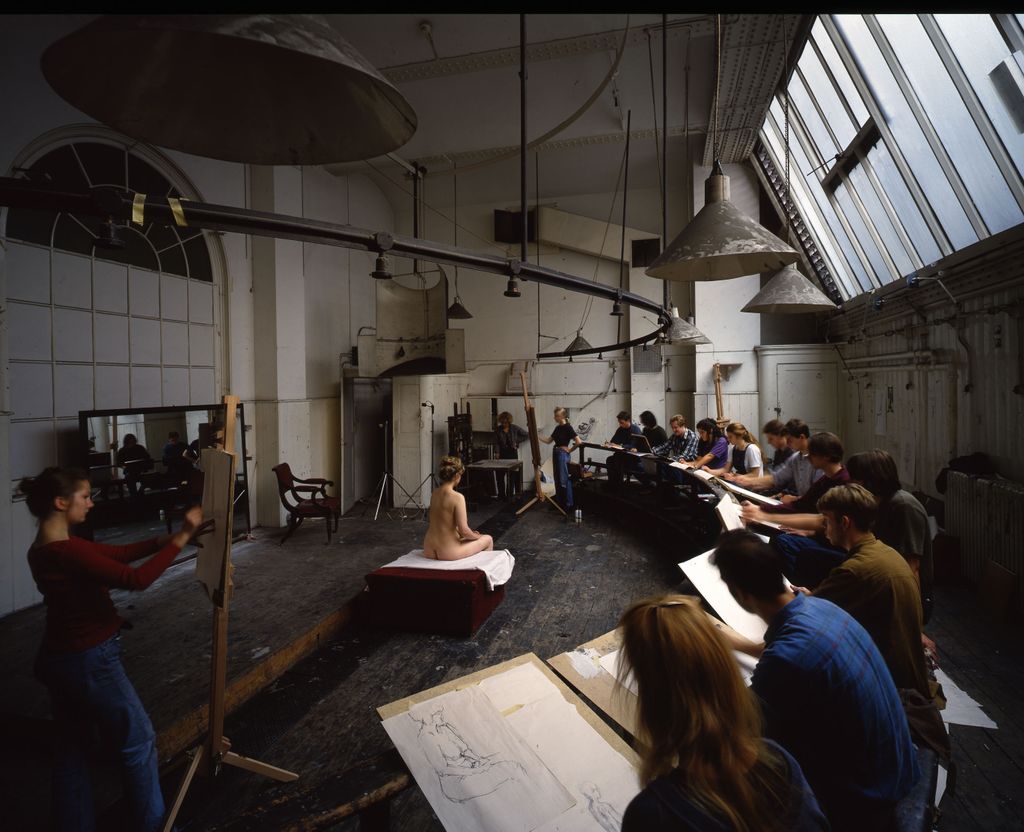Art education is changing. The old ecology, established in the 1830s, whereby there were small-scale, specialist art schools in most British cities, has been absorbed into an ecology of new universities.
The small art schools had picked out bright students on the basis of their skills in drawing and the best went on to study at the Royal College of Art. Teaching of specific craft skills, for example, in ceramics, textiles and printmaking has now been replaced by programmes of student-centred learning in which students themselves are encouraged to develop their own creativity through experiment in language, new media and ideas. They are given time, space and, most especially, intellectual freedom to develop their own artistic language.
This approach to artistic training, which has been dominant in the post-war period, has clearly been very beneficial in terms of making Britain a centre for the creative industries, not just in the arts, where the Young British Artists have exemplified an attitude of imaginative anarchy, but also in advertising, film, design, fashion and now computer games.
If Britain has managed to maintain itself as a centre for the financial services, with all the attendant problems of high risk and social inequality, we have as a country, and particularly in government, paid much less attention, except for a brief and slightly embarrassing period in the early days of the Blair government, to our dominance in the creative industries. In industries, such as advertising and architecture, we have benefitted from an attitude to education which has privileged the questioning of received authority and prioritised imaginative problem-solving.
This is an issue which I would expect to be receiving much more attention at a time when the government is restructuring education to improve Britain’s skills, quite rightly, in language and numeracy, but not, so far as I am aware, in creativity. There are certain quite obvious questions which I think need to be asked in terms of art education:
At the moment, there is a high flow of students from other parts of the world, particularly China, Korea and South-East Asia, to learn from the distinctive education system which Britain currently offers. At the same time, the governments in those countries, particularly China but also Singapore, are investing heavily in arts education. How will we be able to retain our leading edge?
It has been convenient for universities with courses in the arts that the emphasis has been on developing creative freedom rather than necessary creative skills, since it has allowed for a reduction in contact hours. But as student fees increase to the true cost of the course of study, are students themselves going to be willing to pay for such a hands-off attitude to student learning?
Many of the most creative individuals in the post-war period benefitted or suffered (depending on your point of view) from a much more proscriptive attitude to teaching. In living memory, students were still expected to learn to draw from the antique and many more had a regime which placed an emphasis on drawing from the living model. As the method of teaching has become more student-centred, is there a risk in the loss of basic skills of observation and expression through drawing?
The dominant languages of government are economics, administration and law. Very often, creative individuals do not want to involve themselves in bureaucracy. But if creativity is going to be the asset which is going to differentiate us from other economies, are we paying sufficient attention to it in government?
Much of the discussion surrounding the restructuring of education is around the improvement of basic skills and the development of the so-called STEM subjects: science, technology, engineering and mathematics. Is government devoting the same amount of attention to the development of the left field: creativity, problem-solving, originality and artistic invention? Should we be concentrating on STEAM subjects, adding the arts back into the mix?
Is there a risk in the loss of craft-based skills, such as carpentry and book-binding? Aren’t we going to need the ability to make things as well as to invent them?


